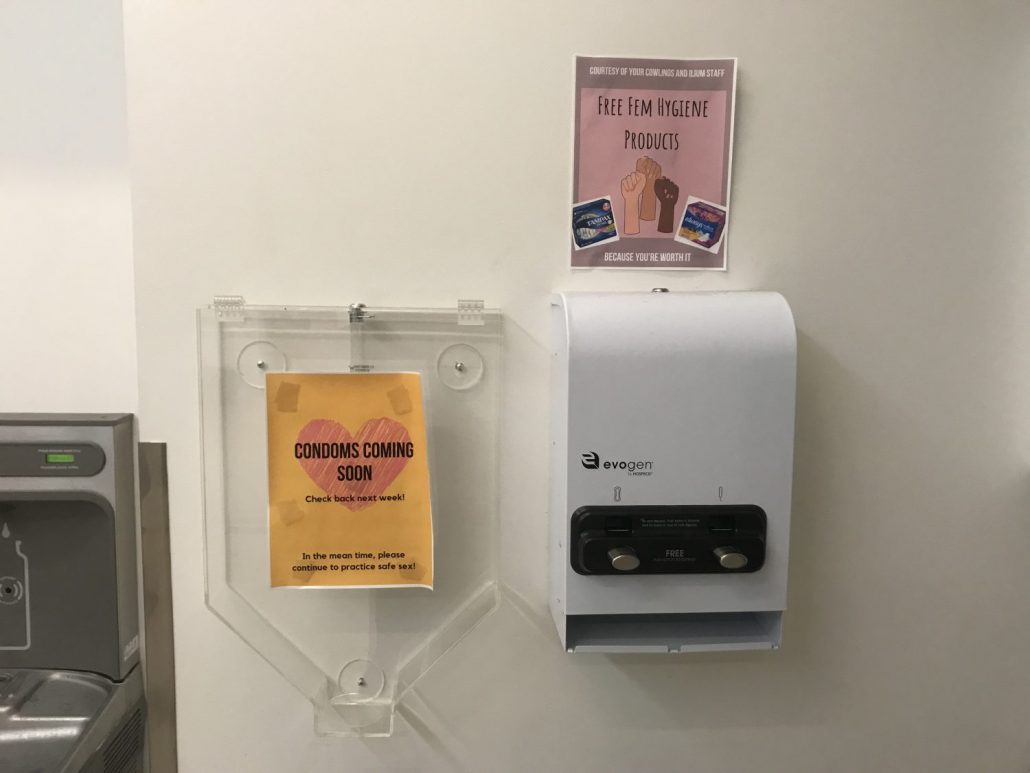Feminine products could have been offered sooner

At the beginning of this semester, USC Residential Education piloted a new program that provides free feminine hygiene products to residents in Cowlings and Ilium Residential College. This pilot is part of a sustained effort USG senators have been working toward for nearly three years.
USG implemented the pilot after receiving positive feedback from the free condom initiative, which required resident assistants to supply condoms for on-campus student residents. In 2017, USG conducted a test run of the program outside of Engemann Health Center through which it offered 900 menstrual products over a three-day period. The trial was met with support of a permanent program.
In January 2018, USG finally passed the resolution enabling free feminine hygiene products to be distributed on campus. However, this has not happened yet. While this action may seem progressive in nature, USC is not the first university to bring feminine hygiene products on its campus. In fact, the University is falling behind. This resolution is long overdue, and many other college campuses have already gone much further than USC.
The University of Minnesota began offering free menstrual products on campus over a decade ago. When Brown University started stocking free tampons and pads in campus bathrooms — men, women and gender-neutral restrooms — in 2016, the program inspired many other campuses to do the same, sparking a new wave of college cultural reforms.
For many female students, menstrual products are considered a necessity yet are taxed as a luxury in our country. Forty states still implement a tax on menstrual products, including California. A standard box of female hygienic products at Target in USC Village costs anywhere between $3 and $10. While it may not seem like much, the monthly cost of tampons and pads can add up to over $1,000 a year. Therefore, providing free and accessible feminine hygiene products on campus is beneficial for overall student wellness — physically, mentally and financially.
For now, USC is only offering this privilege at one residential college: Cowlings and Ilium. Efforts toward expansion were stalled when the University’s custodial staff argued that their contract does not specify the handling of menstrual products. While the majority of the programs’ costs are not necessarily in relation to the products themselves, the costs of the packaging and maintenance can quickly add up, which serves as the University’s primary concern.
Brown University was able to offer an adequate solution to these production problems to successfully launch this initiative. According to Brown University’s Undergraduate Council of Students, they are the ones responsible for restocking and maintaining these items on a weekly basis. They believe that the benefit of this program greatly outweighs the technical concerns and are optimistic that it will expand to men’s restrooms in the future.
Taking inspiration from Brown’s free on-campus feminine hygiene program, there’s no reason for USC to hesitate to make their program campus-wide. The free condom initiative was the University’s effort to promote safe sex and student health. It is time for the university to recognize the importance of female health and wellness as well, something that should have been addressed long ago. The positive student feedback from the 2017 trial ensures the success of a permanent program.

